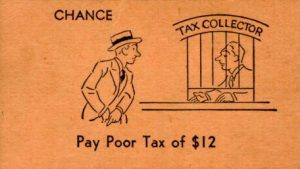This is a guest post from Eric at Narrow Bridge Finance as part of the Yakezie Blog Swap. This week, we are discussing the topic “Best Tips for Your Taxes.” You can see my post on the same topic at Eric’s site.
People around the United States are in a last minute flurry to find their W2s, 1099s, 1098s, and find the easiest and cheapest way to load all of that onto a 1040. If that sounded like a foreign language to you, don’t worry. Here are some of my favorite tips for navigating tax season.
Tip #1 – File Early
I guess if you are reading this, you probably already missed this one. But there is no time like the present to start planning to avoid next year’s procrastination.
I sent my taxes to my accountant around the end of February. Avoiding the stress of last minute filing can do wonders for your health and sanity. Planning ahead and filing early just makes life easier on you.
Tip #2 – Understand Your Forms
Decoding that foreign language is important. Knowing which tax forms to look for is a big first step. Here are the most common items to look out for:
· W2 – Earnings report from your employer
· 1099 – Miscellaneous income forms. These include bank interest, investment income, and freelance income.
· 1098 – Deduction forms. If you pay mortgage interest or higher education expenses, expect 1098s that you can use to lower your tax liability.
· 1040 – This is the form that you submit to the IRS that summarizes your annual taxes paid, taxes owed, and any refund or additional payment.
Tip #3 – Stay Organized
My taxes this year were two inches thick. Getting everything from my banks, investments, employer, and other income sources is a chore on its own. To stay organized, I made a checklist outlining everything I was expecting and marked forms off as they arrived.
When the form arrived, via mail or online, I filed hard copies in manila folders by type. My personal forms went into one folder and each of my side income sources had its own folder.
Make sure to keep each year separate but filed away in case you need it. It is important to understand how long to keep bank statements and other financial records.
Tip #4 – Understand How Your Taxes Work
You pay taxes every time you get a paycheck. You earn money all the time, and you might not remember it around tax time. To make sure you file correctly and avoid penalties and audits, you should understand how your taxes work.
Take time to learn about itemized deductions versus the standard deduction. Take time to learn about tax brackets. Whether you use tax software to file or have an accountant take care of it for you, you should understand the complexities of your taxes in case you are contacted by the IRS and to make sure you are not overpaying.
Get To It!
Now that you know my best tips, get those taxes done. The filing deadline is swiftly approaching, and you don’t want to get in trouble for being late.
(Photo credit: Tax Sign – 401k, Flickr; Chance Card – OhioProgressive, Flickr)
